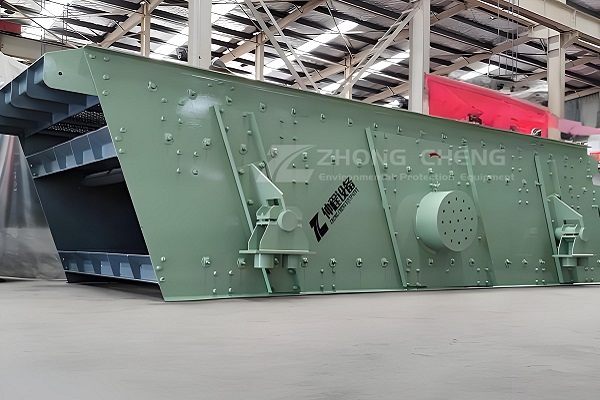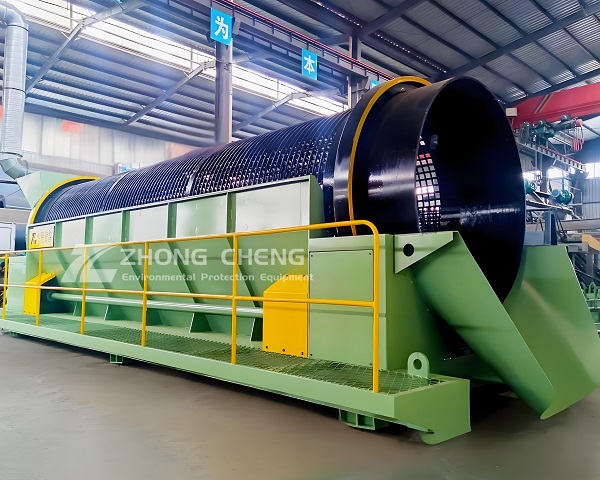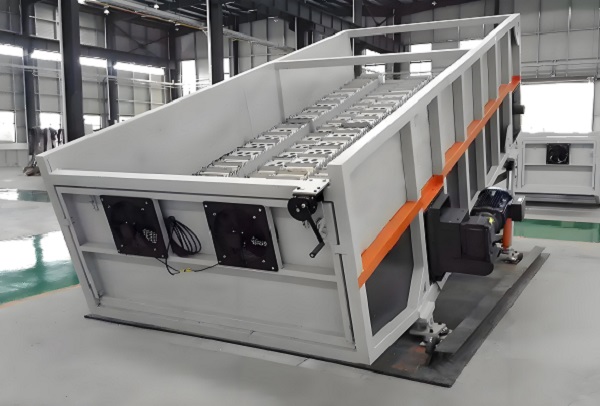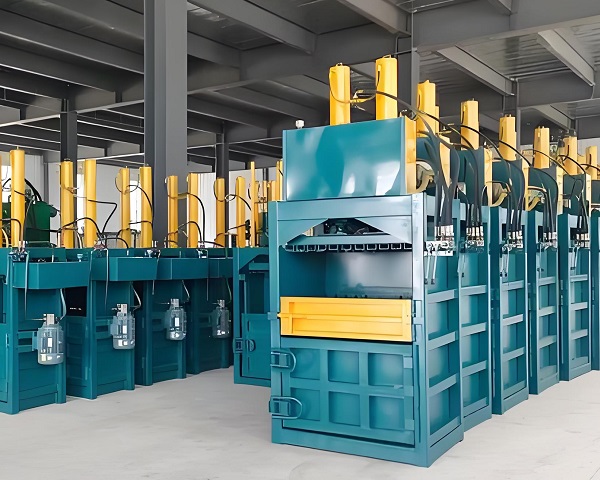At a time when resources are becoming increasingly scarce and environmental problems are becoming more severe, waste recycling has become the focus of global attention. It is not only a reflection and innovation of the traditional linear economic model of "production-consumption-discarding", but also a key path to achieve sustainable development. Waste recycling involves converting various types of waste into reusable resources or energy through physical, chemical or biological means. Its significance runs through multiple levels such as resource protection, environmental protection, economic development and social progress, and has a profound and positive impact on the long-term development of human society.
Resource protection: Alleviate resource shortages and ensure sustainable development

Vibrating Screen
1. Metal resource recycling
Metals are important resources that are indispensable in industrial production and daily life, but the reserves of metal mineral resources on the earth are limited, and the mining process faces many challenges. Taking copper as an example, although the proven reserves of global copper resources are of a certain scale, with the rapid development of industries such as electronics and construction, the demand for copper continues to rise. According to statistics, for every ton of recycled scrap copper, about 0.8-0.95 tons of pure copper can be extracted, which is equivalent to reducing the mining volume of 200 tons of ore. Recycling scrap iron for steelmaking can not only reduce the mining of iron ore, but also reduce the consumption of a large amount of coal in the ironmaking process. The recycling of metal resources effectively alleviates the contradiction between supply and demand of metal mineral resources, ensures the continuous and stable supply of metal materials in industrial production and infrastructure construction, and provides a solid resource foundation for the long-term development of the economy and society.
2. Recycling of non-metallic resources
The recycling of non-metallic resources such as waste paper, plastic, and glass is also of great significance. The global annual consumption of paper is huge, and the production of paper requires a large amount of wood, water and energy. By recycling waste paper, deforestation can be reduced and the ecological environment can be protected. For every ton of waste paper recycled, about 0.8 tons of recycled paper can be produced, which is equivalent to protecting 17 large trees. The recycling of plastics can not only reduce dependence on fossil resources such as oil, but also reduce the pollution caused by plastic waste to the environment. Glass recycling can save raw materials such as quartz sand and soda ash and reduce production energy consumption. The recycling of these non-metallic resources extends the use cycle of resources, realizes the efficient recycling of resources, and alleviates the pressure of resource shortage to a certain extent.
Environmental protection: reduce pollution emissions and improve the ecological environment

Trommel Screen
1. Reduce solid waste pollution
The accumulation of large amounts of untreated waste will occupy a large amount of land resources and may also cause environmental problems such as soil pollution, water pollution and air pollution. Take plastic waste as an example. Because it is difficult to degrade, it will exist in the natural environment for a long time, forming "white pollution". Plastic waste in the ocean not only threatens the survival of marine life, but may also enter the human body through the food chain and endanger human health. By recycling waste, the amount of solid waste generated can be significantly reduced. For example, composting kitchen waste and converting it into organic fertilizer can not only reduce the amount of landfill, but also avoid the pollution of soil and groundwater by leachate generated during the landfill process.
2. Reduce energy consumption and greenhouse gas emissions
Waste recycling usually consumes less energy than production from raw materials. Taking the production of aluminum as an example, the energy required to produce new aluminum by recycling waste aluminum is only about 5% of that required to extract aluminum from bauxite. The reduction in energy consumption directly reduces the emission of greenhouse gases and pollutants such as carbon dioxide and sulfur dioxide during the combustion of fossil energy such as coal and oil. In addition, anaerobic fermentation of organic waste can not only produce biogas as clean energy, but also reduce the methane and other potent greenhouse gases produced by the decomposition of organic waste in the natural environment. Waste recycling plays a dual role in energy conservation and environmental protection, and is of great significance to mitigating global climate change and improving the quality of the ecological environment.
3. Economic development: creating economic benefits and promoting industrial upgrading
1. Reduce production costs
For enterprises, using recycled resources as production raw materials can significantly reduce production costs. Taking steel enterprises as an example, using scrap steel to make steel can save a lot of costs in raw material procurement, transportation and smelting compared to using iron ore to make steel. At the same time, the labor cost and equipment investment in the recycling process are often lower than the cost of starting production from raw materials. This cost advantage makes enterprises more advantageous in market competition, helps to improve the economic benefits and profitability of enterprises, and promotes the sustainable development of enterprises.
2. Drive the development of related industries
The waste recycling industry covers multiple links such as waste collection, transportation, sorting, treatment and recycled product production, forming a huge industrial chain. The development of this industry not only creates a large number of employment opportunities, but also professionals from grassroots garbage sorters, recycling station staff, to technology research and development, equipment manufacturing and other fields can find jobs in this industry. At the same time, the waste recycling industry has also driven the development of related equipment manufacturing, environmental protection services and other industries, promoted the optimization and upgrading of the industrial structure, and injected new impetus into economic growth.
3. Promote the development of circular economy
Waste recycling is an important part of the circular economy. By building a circular economy model of "resources-products-waste-renewable resources", efficient recycling of resources and minimized waste emissions are achieved. The development of the circular economy helps to improve resource utilization efficiency, reduce the dependence of economic development on natural resources, reduce the negative impact of economic activities on the environment, promote the coordinated progress of economic development and environmental protection, and achieve sustainable economic growth.
Social progress: Enhance environmental awareness and promote sustainable social development

Vibrating Screen
1. Improve public environmental awareness
The promotion and implementation of waste recycling has enabled the public to have a deeper understanding of the severity of resource shortages and environmental problems, and has enhanced the public's environmental awareness and sense of responsibility. In daily life, more and more people have begun to take the initiative to sort garbage and actively participate in waste recycling activities. This improvement in environmental awareness is not only reflected in personal behavior, but also gradually penetrates into all levels of society, promoting the formation of environmental protection culture in the whole society and promoting the improvement of social civilization.
2. Promote sustainable social development
Waste recycling helps to solve problems in many aspects such as resources, environment and economy, and lays a solid foundation for the sustainable development of society. It ensures the sustainable supply of resources, improves the quality of the ecological environment, improves the quality of life of the people, and promotes sustainable economic growth. At the same time, the development of the waste recycling industry can also promote scientific and technological innovation and technological progress, cultivate and attract more professional talents, and improve the overall development level of society. In the long run, waste recycling is an inevitable choice for achieving sustainable social development, and it is of great significance to building a harmonious and beautiful society.

Vertical Balers
Waste recycling has irreplaceable and important significance in resource protection, environmental protection, economic development and social progress. It is an effective way to solve global problems such as resource shortages and environmental pollution, and is also a key measure to promote high-quality economic development and achieve sustainable social development. However, the current waste recycling work still faces many challenges, such as insufficient public participation, imperfect recycling system, and lagging technology research and development. In the future, the government, enterprises and all sectors of society need to work together to strengthen policy support, improve the recycling system, increase investment in technological innovation, enhance public environmental awareness, and further promote the in-depth development of waste recycling work to achieve harmonious coexistence between man and nature and sustainable development of the economy and society.